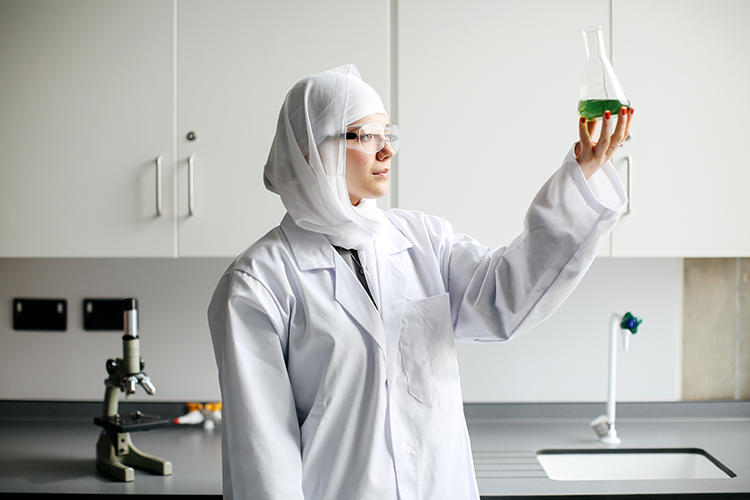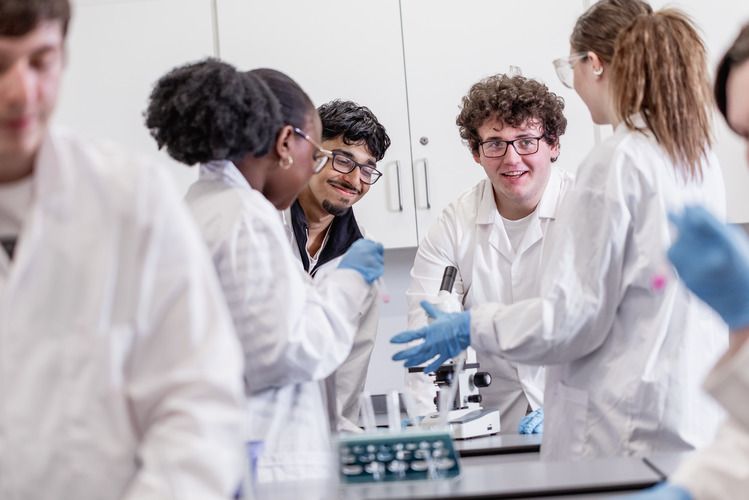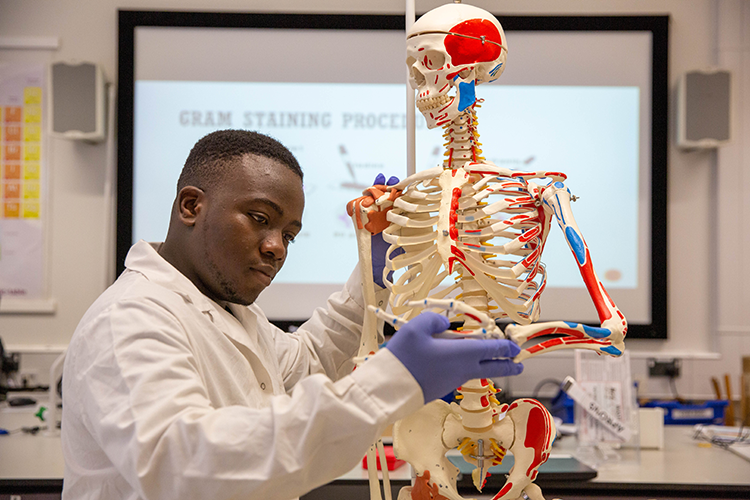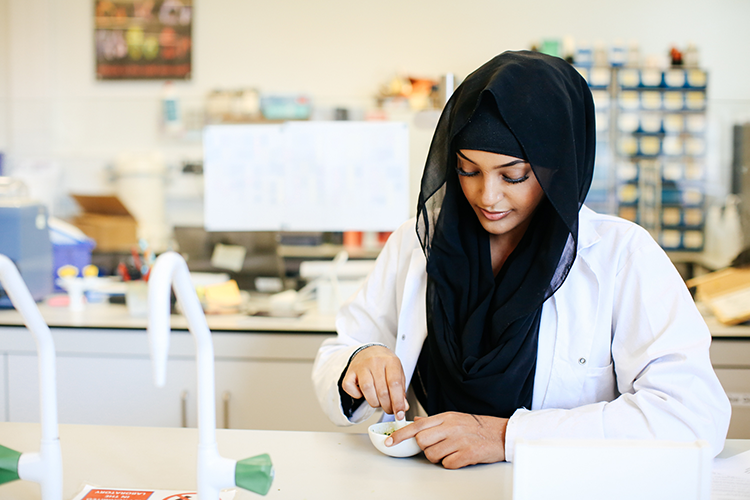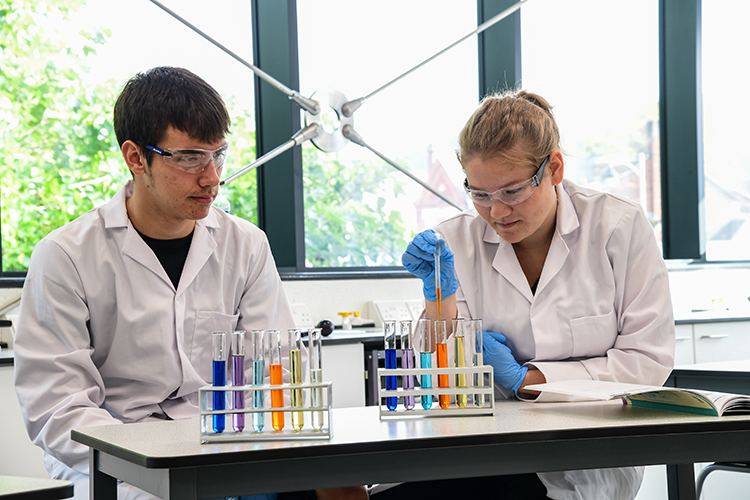Science shapes the future, this course will enable you to uncover both natural and social science skills - providing a theoretical and practical feel for this progressive field of study.
As well as learning many new skills you’ll find that your communication skills develop. Professional presentation is a vital skill for any scientist. Learning how to assemble and process data while being articulate about your findings will be central to your learning with us.
Subjects span natural science and social science, providing a theoretical and practical feel for this progressive field of study.
- Entry Criteria
4 GCSEs (9-4), including English, maths and science, or a relevant Level 2 Diploma.
- What will I study?
Modules include:
- Principles and Applications of Science - learn some of the key science concepts in biology, chemistry and physics
- Practical Scientific Procedures and Techniques – be introduced to quantitative laboratory techniques, calibration, chromatography, calorimetry and laboratory safety, which are relevant to the chemical and life science industries
- Science Investigation Skills - understand the stages involved and the skills needed in planning a scientific investigation: how to record, interpret, draw scientific conclusions and evaluate
- Laboratory Techniques and their Application - learn the importance of health and safety in work place laboratories, how data is stored and communicated and how organic liquids and solids are made and tested industrially
- Principles and Applications of Science II - build on and extend the range of key science concepts in biology, chemistry and physics
- Investigative Project - gain an understanding and the skills required to undertake an investigative project
- Human Regulation and Reproduction - understand the importance of the regulation of body fluids in the human body and understand the organisation and function of the nervous system and homeostatic mechanism
- Genetics and Genetic Engineering - understand the process of protein synthesis and be able to investigate the process of cell division in eukaryotic cells
- Future Prospects
After completing this course, you can progress onto a university degree in a related area. This course will open the doors to a variety of courses, including:
